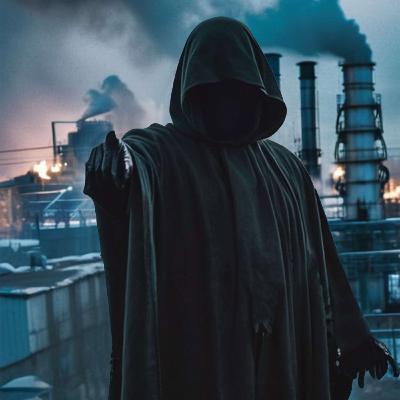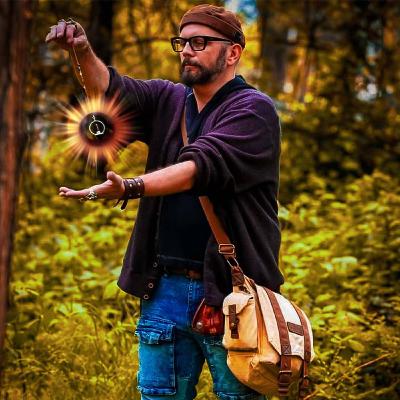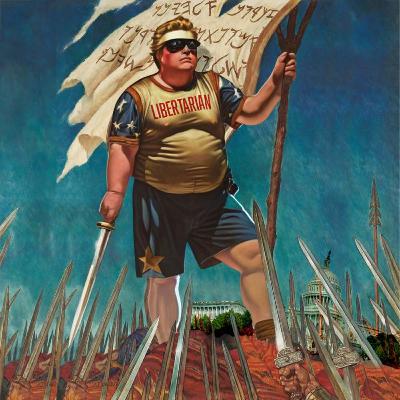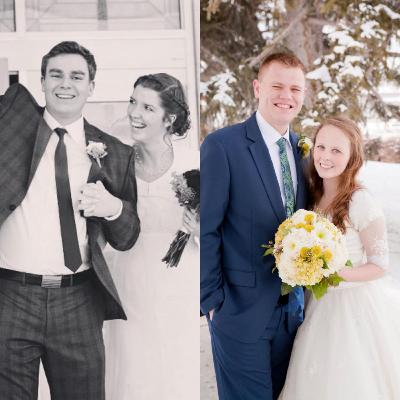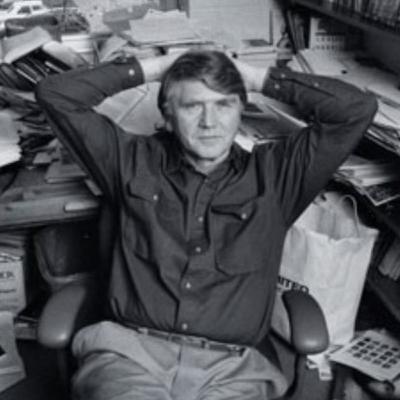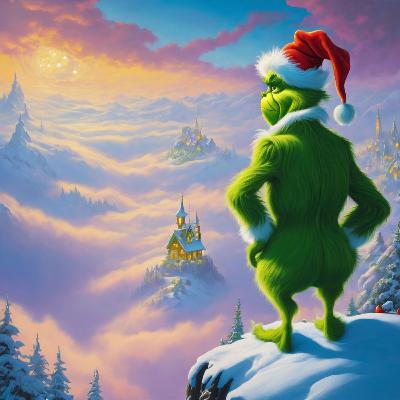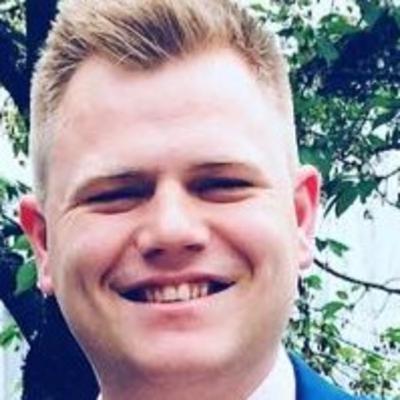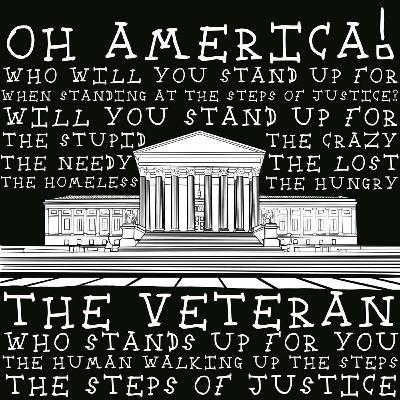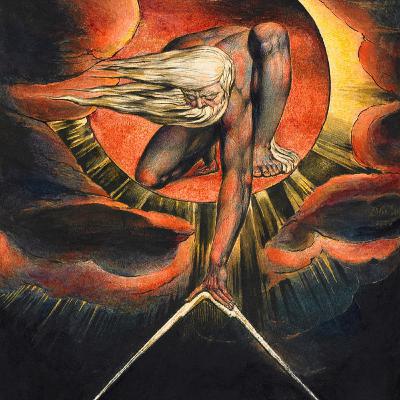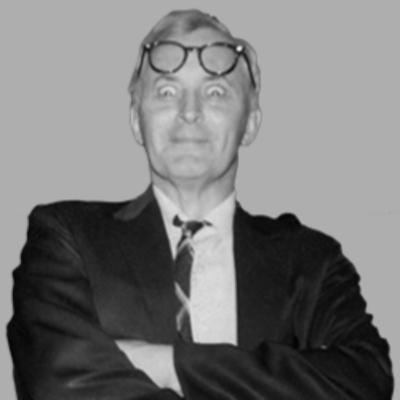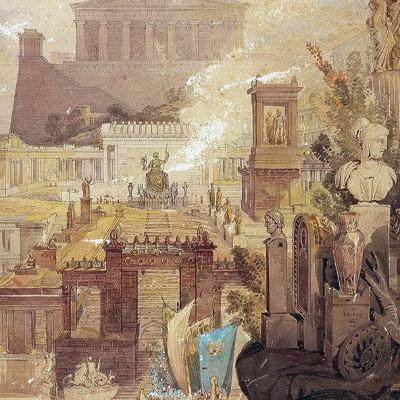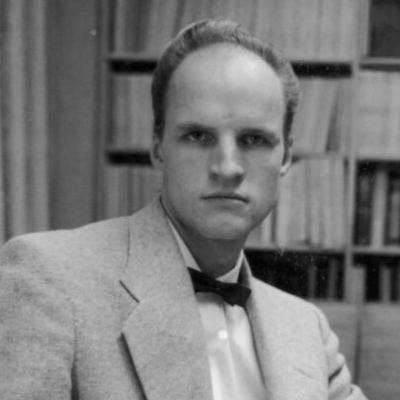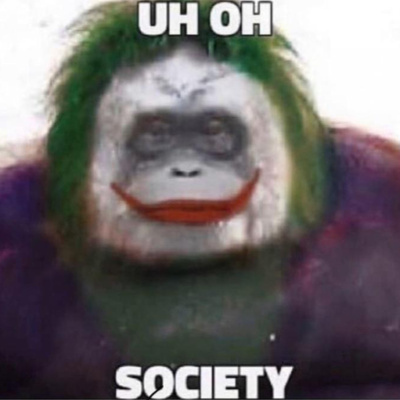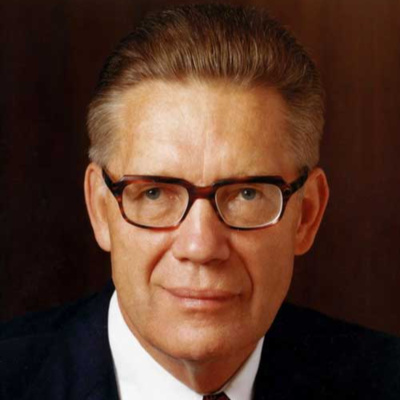Discover The Analyst & The Fool
The Analyst & The Fool

The Analyst & The Fool
Author: Brandon Wilson and Christian Van Dyke
Subscribed: 1Played: 28Subscribe
Share
© Brandon Wilson and Christian Van Dyke
Description
Have you ever wondered to yourself: "How am I here? What is holding the universe together?" Have you ever driven yourself insane trying to understand all of the different methods and theories humanity has used to answer these terrible questions? Understanding the universe and humanity's place within it is an absurd undertaking. Nevertheless, it is an undertaking that has driven and baffled humanity for millennia. Fear not dear listener! Brandon Wilson and Christian Van Dyke are here to share in your confusion. Don your jester caps and professor robes as we analyze the laughably absurd!
33 Episodes
Reverse
This Christmas season, we bring the yearly reminder to make mankind your business. "A Christmas Carol" is a long beloved story that describes the transformation of Ebenezer Scrooge from a misanthropic, greedy, old miser to a deeply caring and altruistic person. Perhaps most importantly, the text is a meditation on poverty and how those in positions of power create and justify their power by using poverty as a tool for exploitation. Scrooge's past, present, and future not only plug at Scrooge's heartstrings due to nostalgia but they also show Scrooge how his actions directly impact those in need, particularly Tiny Tim.
Take some time this Christmas season to not only give us a listen but to read the text for yourself and become transformed as Scrooge was. In today's world, it is needed, lest our future become a bleak and desolate hellscape no longer fit for life.
Happy Halloween!A riddle for you: what do you get when you cross Charles Fort with Henry David Thoreau? You get Danny B. Stewart, folklorist extrordinaire!Danny Stewart is an on-the-ground folklorist who has collected hundreds of original stories in the greater Utah area. These stories consist of encounters with the fantastic, the impossible, the ghoulish, the loving, the benign, and the banal. They range from angry flying monkeys bouncing from tree to tree at elementary schools, headless children that haunt the Provo Tabernacle (now known as the Provo City Center Temple) and downtown Provo, gnomes and faeries that roam Lions Park in Provo, UT, ghosts that haunt basements in bars, and many different ventures into what Danny calls the Provo Vortex on Grandview Hill. Danny’s ultimate charge is to challenge closely held assumptions of both academics and lay people. Reality is far stranger than we tend to think, but that strangeness need not be thought of as entirely evil and needing to be avoided. Indeed, life is far richer than the stale and paranoid realities we tend to create for ourselves, and we have people like Danny to thank for bringing that richness to our attention. For more information on Danny and his ghost tours, check out his Facebook page: https://www.facebook.com/provoutahghosttourCheck out this interview Danny did in Canada earlier thisyear: https://open.spotify.com/episode/01XH4hqCO4aKIJ7bPAgvA4?si=s1gJHghgTQm3gGE5nPJhOASpecial thanks to Emily Van Dyke for her photo graphic design.
On this week’s episode of Horsin’ Around we are pleased to have one of our dear classmates at CGU, Shiloh Logan, join us. Our conversation revolves around the intricacies of the Mormon “Liberty Community,” groups of Latter-day Saints that are informally organized around Ezra Taft Benson’s “Proper Role of Government” and the writings of W. Cleon Skousen. We further explore the ways that Satan lurks in the background of these ideologies, as well as Shiloh’s own professional, philosophical, and spiritual journey with the Liberty Community and Latter-day Saint conservatism more broadly. It truly is a Religious Studies romp as we delve into the ways that we “scripturalize” certain impulses in our political worlds by incorporating cosmic narratives that orient these political orientations, framing them as governed by God, Satan, and/or their emissaries. These narratives and their significance are then constantly renegotiated and incorporated when new events and people become introduced into the political world.
We also briefly touch on what was then breaking news (we recorded this conversation last Fall) about Operation Underground Railroad’s founder Tim Ballard getting into hot water both legally and with the institutional Mormon church and the early shockwaves that were beginning to go through Mormondom. In light of this last topic, we may have to bring Shiloh back to speak more about more recent developments in that infinitely fascinating interaction between an influential layperson and the upper echelons of Mormon leadership.
After Christian and Brandon descended into unmitigated madness after their first two dates, their spouses looked over at them and said "Hey guys, pass some of that good stuff over!"
We now venture east from Greece to the roots of the Himalayas to show that philosophy is not just a thing for Westerners and especially that Buddhism is not merely a "religion." Indeed, "Buddhism" itself is not a thing until European imperial forces travel east and categorize the myriad ways of the Dharma as such. This makes understanding the Buddha, his teachings, and how they spread across the Asian and, reportedly, African and European continents a rather sticky endeavor.
After this necessary preface, we cover the life of Siddartha Gautama, a prince in the Indian peninsula around 600 BCE, who left palace life and eventually became the Buddha, the enlightened one. The Dhammapada is a collection of reported teachings of the Buddha, or, in other words, constitute his various upaya, or skillful means, to aid humanity in becoming liberated from the cycle of rebirth and dissolve back into the cosmic void. We also cover the Four Noble Truths and the Eightfold Path, or the Eight-Pointed Wheel of the Dharma.
Buddhism in its entirety is far too vast and deep to cover in one episode. Consider this a basic crash course to whet your palate to want to seek out more on your own.
For those who would like to learn more about European imperialism and how it created almost everything we know about "the Orient," Buddhism, and religion more broadly, we recommend the following texts:
"The Invention of World Religions: Or, How European Universalism Was Preserved in the Language of Pluralism" by Tomoko Masuzawa
"Orientalism" by Edward Said (we will likely cover this in a much later episode)
Here is the Big Joel video that we mention in the episode: https://www.youtube.com/results?search_query=big+joel+ben+shapiro
In this episode of Latter-day Saint Thinkers, we cover one of Christian’s favorite figures in Mormon thought: the inimitable Eugene “Gene” England. From his early years growing up in Downey, Idaho to his retirement from BYU, England lived his life in an organically liberal Mormon way. “Liberal” with a little “l” being the key, here. Gene fiercely believed in and was willing to accept opinions that were different than his own and lived his life devoted to the ways that Mormonism provided folks the tools to drink deeply from all sources of information in a way that enriched and strengthened faith. To this end, as a graduate student at Stanford, he founded Dialogue: A Journal of Mormon Thought, which sought to bring diverse voices into dialogue with one another in the hopes of creating a robust conversation about Mormonism for both intellectuals and lay people alike. However, England found himself ensconced in the bourgeoning culture war that had been brewing between Mormon intellectuals and the institutional Church for some time. At BYU he found himself labeled as both too liberal and not liberal enough. All while he simultaneously received apostolic beatdowns for progressive theological views on God and writing a biography of Brigham Young. In short, Gene found himself at a crossroads in the history of Mormon thought. He was born too late to be among the “golden years” of Mormon thought and theology in the early 1900s but born too soon to be among scholars of Mormonism that apply a critical lens to their faith and still be accepted that we see nowadays. We owe much of our intellectual freedom to Gene, and we are all the better for it.
Christian cries in the episode too, so that means it must be a good one!
Here are links to the resources we drew from to create this episode:
Stretching the Heavens: The Life of Eugene England and the Crisis of Modern Mormonism by Terryl Givens:
https://www.amazon.com/Stretching-Heavens-Eugene-England-Mormonism/dp/146966433X
Eugene England: A Mormon Liberal (Introductions to Mormon Thought) by Kathleen Haglund:
https://www.amazon.com/Eugene-England-Kristine-L-Haglund/dp/0252043936
The Eugene England Foundation:
https://www.eugeneengland.org/
There is perhaps no document in recent years that has been more polarizing for Latter-day Saints than The Family Proclamation. Is it a prophetic document? Is it doctrine? Is it scripture? Or just good advice? It seems there is hardly any consensus amongst Latter-day Saints on this matter. Conservative members tend to use the document as a bludgeon against people who are LGBTQ+, seeing their sexual and gender identities as violating God's commandments given to present-day prophets, seers, and revelators. Whereas liberal members tend to negotiate more with the text, trying to adjust the document to meet their present-day sensibilities or simply calling for the dismissal of the document entirely.
In this episode, we challenge dogmatic readings of this text by analyzing its history as an amicus brief for a civil rights case in Hawaii. We further discuss the history of the ideas contained within the document. What does the text say? What did the original authors intend for the text to say? Where do these ideas come from? How does that original intent get swept away by the passage of time and through how the text is used? These questions are particularly pertinent since Latter-day Saints are famous for polygamy—a sexual orientation that was quite deviant from the norms of the time. The Family Proclamation, with its staunch stance of monogamy and cisgender heterosexuality, stands as an awkward contrast to the sexual and relational history of the Church, particularly in its infancy.
Please check out Dan McClellan's podcast episode on the matter if you'd like to learn more about homosexuality in the Bible.
https://www.youtube.com/watch?v=gW6w-AOiKNM&pp=ygUeZGF0YSBvdmVyIGRvZ21hIGFkYW0gYW5kIHN0ZXZl
To access David Scott and Boyd Petersen's article, use this link:
https://drive.google.com/file/d/1NmPbiKVlj0XdPdpWLdkYFyHGT5Me9ut7/view?usp=drivesdk
Blast this music... it's joyful and triumphant!
This Christmas we engage in one of the most important ontological discussions since the debates over the nature of Christ at the Councils of Nicea and Chalcedon: What is the Grinch and Why is the Grinch?
Using Jim Carrey's version of "How The Grinch Stole Christmas" as our basis, we explore the wacky world of Who reproduction--exploring where babies come from--and primarily engage with The Grinch's struggle to regain a will to power stripped away from him in his youth. However, the film leaves us hanging a little bit on this front: does the Grinch surrender himself to a status quo in Whoville? Or does he bring about a real transformation of Whoville by relinquishing his resentment of the Whos and Christmas? All of this, and more, will be discussed!
Merry Christmas to all, Happy New Year, and Happy Holidays! We appreciate your continuous support.
*Content Warning*
There are mentions of sexuality throughout this episode, especially since characters in the film are... umm... subtly sexually involved? There is a brief discussion of eugenics and ableism as we investigate a Platonic interpretation of the film. We do not endorse these views and actively oppose them.
For this special episode of The Analyst & The Fool, we bring you one of our first episodes ever recorded.
In this episode, we dissect this amorphous blob called Brandon Wilson; a PhD student at Claremont Graduate University. Brandon details a bit about his intellectual biography as a missionary for The Church of Jesus Christ of Latter-day Saints, getting introduced to the writings of Hugh Nibley, learning to think critically and ask penetrating questions about his faith, and how that led him to study esoteric subjects such as Neoplatonism, Hermeticism, and theosophy under Jeffrey Kripal and Claire Fanger at Rice University. Now, Brandon is bringing these approaches to Mormon Studies in how Latter-day Saints experience their temple ordinances through comparing them with Neoplatonic theurgy. Invoking the comparative hermeneutics of Algis Uzdavinys in his work Philosophy and Theurgy in Late Antiquity, Brandon explores how Mormonism’s temple practices can be categorized as “theurgic” in nature, ritual actions that aid initiates to bring themselves into higher states of consciousness and align their actions with the actions of God. In this sense, Latter-day Saints aim to create heaven on this earth through these processes, thereby making God immanent and subject to human action/inaction.
For this special episode of The Analyst & The Fool, we bring you our very first episodes ever recorded.
In this episode, we dissect this thing called Christian Van Dyke. He is a PhD student at Claremont Graduate University and, in this episode, we discuss his approach to Mormon Studies, Comparative Religion, and philosophy. Christian tells his background and journey to CGU’s Philosophy and Religious Thought program which has compelled him to be involved in Mormon Studies but made him apprehensive at the same time. He talks about four foundational texts that have motivated his work and his approach to the study of “religion” throughout his academic career. These texts are Brian Birch’s “A Portion of God’s Light: Mormonism and Religious Pluralism,” Donald Davidson’s “On the Very Idea of a Conceptual Scheme,” Eugene England’s “On Becoming a World Religion: Blacks, the Poor– All of Us,” And Peter Winch’s “Understanding a Primitive Religion.” These texts have helped Christian develop an ethic of comparative religion that argues that there is no neutral place from which to talk about “religion” and to always be mindful that comparison may say more about the one doing the comparing than what the things being compared might or might not actually have in common.
In this episode, we jump into new territory--altered states, if you will. We are pleased to welcome Connor Storck onto the show to discuss his work with psychedelic law in the United States.
Connor is currently a law student at the University of Detroit Mercy School of Law where he hopes to complete his J.D. and sit for the bar in 2024. He is also the current Director of Operations for the Intercollegiate Psychedelics Network (website can be found here: https://www.intercollegiatepsychedelics.net).
Connor and Brandon were in the same cohort at Rice University where they both received their respective MA degrees in 2019. Connor's perspectives on psychedelics and the prominence of altered states of consciousness within religious communities proved to be transformative for Brandon--so much so, that it blew open his brain to the possibility of Mormonism being founded on such substance use (more on that in the future--stay tuned).
In this episode, Connor and Brandon start out by reminiscing about their days at Rice (where Christian feels left out for missing all the fun). They then jump into the tumultuous, Sisyphus-like battle over the legality of psychedelics and trying to close the Pandora's box opened by Richard Nixon's and Ronald Reagan's respective "war on drugs." Psychedelics, and altered states of consciousness more broadly, are foundational to the history of humanity --past, present, and future--and the creation of culture and mythology itself. It is simply unavoidable and has even proven to be deeply valuable in therapeutic settings. While the legal future of psychedelics is perhaps a few decades from becoming more normalized, there is hope!
***Disclaimer: This episode contains a brief and explicit discussion on sexuality; listener discretion is advised.***
Up until this point, we have been discussing leaders in the formation of Latter-day Saint thought, documenting how they articulate their respective takes on the theologies and practices of “Mormonism.” With Armand Mauss, we take a step back from that and analyze the Church as an object of sociological study.
Armand Mauss (1928-2020) was a professor of sociology at Washington State University where he specialized in the sociology of religion. His most influential work on Mormonism is undoubtedly The Angel and The Beehive (1994). This work dissects the sociology of the Church in the twentieth century, highlighting the shifts from "polygamy era" Mormons at the turn of the century, to "assimilationist" movements in the early part of the century, and concluding the century with a shift to "retrenchment." Mauss wants to dissect what societal drove drove these changes, particularly the shift from "assimilationist" to "retrenchment."
For Mauss, the "assimilationist" period is when the Church sought to rebrand itself post-polygamy, hoping to assimilate itself with the broader American "Christian culture." Prior to this shift, the United States was often polemicized as the "wicked world" that the people of Zion (i.e. Mormons) needed to leave, taking refuge in the mountains (i.e. Utah). All that shifted in the 1920s when Church leaders wanted to be viewed as a "brother church" with other Protestant, Catholic, and even Jewish denominations. The 1960s, however, brought a shift of the Church’s focus to retrenchment, where Church leaders, such as J. Reuben Clark, Ezra Taft Benson, Harold B. Lee, and Bruce R. McConkie, sought to "particularize" the Church again, hoping to recreate the former glories of Mormonism's past that were lost through assimilation with “the world.” The shift created a more hierarchically rigid and corporatized Church where Church leaders organized themselves and led the Church as if it were a business, and one does not question one’s leaders lest they be conceived of as apostate. The retrenchment period saw further economic shifts in the Church's business ventures, crackdowns on what conducts were permissible for Temple recommends, and even strict guides on how the family ought to conduct themselves ranging from the creation of Family Home Evening to publishing a pamphlet on what sexual positions were proper and improper.
Mauss is a figure that you may not have heard of, but his ideas created the field of Mormon Studies as we know it today.
Suggested Reading for Overachievers
- "The Angel and The Beehive" by Armand Mauss
- "Rethinking Retrenchment" by Armand Mauss (This is Mauss' updated views on his book "The Angel and The Beehive," written in 2011. Access here: https://www.dialoguejournal.com/articles/rethinking-retrenchment-course-corrections-in-the-ongoing-quest-for-respectability/#pdf-wrap
- "All Abraham's Children: Changing Mormon Conceptions of Race and Lineage" by Armand Mauss
- "Shifting Borders and a Tattered Passport: Intellectual Journeys of a Mormon Academic" by Armand Mauss
In our final episode on Plato (at least, for now), we cap off our discussion with the crown jewel of Platonic dialogues.
This particular dialogue plays out differently than the previous ones we have covered; instead of Socrates debating philosophy with people around Athens, a Pythagorean named Timaeus teaches Socrates about the origin and creation of the world.
The dialogue takes place a day after The Republic where two people, Timaeus and Critias, come to Socrates to applaud him for his articulation of the perfect city-state. Timaeus wishes to reward Socrates by teaching him the "likely myth" of the primeval universe where the highest God (typically called "The One") emanated a Demiurge who began to set the universe into order. The four elements--fire, earth, air, and water--are separated; the sun, planets, and stars begin their orbit around a center where the Earth is eventually formed. The Demiurge creates lower gods (who are identified as the Greek pantheon that we all know and love) as protectors of the established order and who guide humanity in their journey from ignorance to knowledge.
All of this, according to Timaeus, reflects Socrates' ideal city-state; the way to knowledge necessitates adhering to the primordial forms that humanity emanated from. By embodying virtue over the course of many lifetimes (remember, Plato taught reincarnation), the philosopher could perfect himself and liberate themselves from the contingencies of the universe.
After losing their sanity on their previous date, Christian and Brandon will now bare their souls to each other for your listening pleasure. Buckle up y'all, we ain't in Kansas no more!
Over the past 70 years, there have been few Latter-day Saint scholars who have been as profoundly inspirational, deeply puzzling, and self-deprecating as Hugh Nibley (1910-2005). Indeed, Brandon's own reading of Nibley inspired his career choice and launched his consciousness into the cosmic stratosphere.
Nibley’s own contribution to Latter-day Saint thought ranges from apologetics, social critique, and temple theology. However, the primary core of Nibley's work, especially post-retirement from BYU in 1975, is the creation of what could be called a “cosmic Mormonism.” The temple, as a “scale model of the universe,” becomes a spring board for humanity to transition from the limited to the infinite, from the personal to the cosmic. Nibley's focus on this was so pervasive that he, almost singlehandedly, helped cultivate the temple-focused theology that the Church presently proclaims. In Nibley's youth, the temple was typically thought of as a secondary feature of Mormonism, with some, such as Truman G. Madsen, confessing that it was something foreign. Madsen himself would even confess to calling the temple endowment "pagan" and initially thinking that it had no place in Mormonism. Nibley helped change everyone's mind by demonstrating that Mormon temple practices have parallels with ancient temple practices in Egypt, Israel, Mesopotamia, Stonehenge, and the Hopi, to name a few.
Nibley felt that the knowledge given in the temple orients cultures and creates worlds; when this knowledge--given by revelation--is ignored or disobeyed, ignorant chaos is the only result. As such, Nibley was a vociferous critic of the Church's engagement with politics and economics, charging the Latter-day Saints' advocacy of capitalism as God's gift to humanity as blasphemy that will reign down blood and horror on this earth. Since God commanded Joseph Smith to live the law of consecration (a form of communalism very similar to Marx's communist utopia), and since Latter-day Saints to this very day are under covenant to live that law and don't, he was quite critical about the direction of the Church. Nevertheless, he believed it to be the Kingdom of God and that it would eventually go right through calls to repentance and remembrance of what ought to be held most sacred in Mormonism.
Suggested Reading for Over-Achievers
- "Temple and Cosmos" by Hugh Nibley
- "Approaching Zion" by Hugh Nibley
- "Zeal Without Knowledge" by Hugh Nibley (access here: https://emp.byui.edu/andersonkc/zeal%20without%20knowledge.pdf)
- "Hugh Nibley: A Consecrated Life" by Boyd Peterson
- Forthcoming work on Nibley's "Heirocentric State" by Joseph Spencer
- "The Sacred and Profane" by Mircea Eliade
To begin perhaps one of Plato's most influential dialogues, it commences with Socrates and friends gathering at a buddy's house in celebration of a festival. The BIG question comes up almost immediately: What is Justice?
The first response: "Giving to each what one is due."
Socrates says "What about if you borrowed a dude's sword and he, in a crazed and murderous rampage, asks for his sword back?"
The second response: "Well then justice is giving to someone what is appropriate."
Socrates: "That's a circular argument dude. You're saying that you need justice already in place to define justice."
The third response: "Justice is whatever benefits the stronger and helps them become stronger."
Socrates: "Don't be such a Chad. Rulers serve the ruled; if all they do is seek to aggrandize themselves, then they rule nothing but themselves while making everyone else miserable; the ruler should not profit from the ruled."
The question is then left unanswered as Socrates and company seek to understand what an ideal city-state would look like that would benefit all who live there. He introduces a rigid caste system where a Philosopher King, who best understands the Forms (i.e. the cosmic architecture that organizes and defines the parameters of reality), rules the city. Those who cannot break free from the material world are left to run the city-state's economy under the jurisdiction of the Philosopher and for the benefit of the entire city-state.
In this city-state, the Philosopher King rules, not just by justice, but also by wisdom, fortitude, and temperance. Given this system, it should come as no surprise that Plato is very much against democracy, seeing it as the road that inevitably leads to tyranny.
Tune in to learn more!
In recent years, Latter-day Saints have emphasized spiritual experiences as their epistemological vantage point that upholds their respective worldviews. This shift is exemplified by the Church drastically changing its approach to missionary work in 2004 with "Preach My Gospel" which emphasizes that missionaries urge potential converts to have and continuously cultivate their own experiences with God. Even further, Pres. Russell M. Nelson has also persistently urged members to do the same, such as his prophecy where he said "In coming days, it will not be possible to survive spiritually without the guiding, directing, comforting, and constant influence of the Holy Ghost. My beloved brothers and sisters, I plead with you to increase your spiritual capacity to receive revelation.”
Truman G. Madsen was a primary influence in this shift where--recalling back to Armand Mauss' episode--retrenchment became so tight that its borders began to crack a bit leading to a shift in the Church's philosophical approach.
Madsen's approach to the faith was less about hashing out minute arguments and apologetics and instead hammering home the primacy of personal experience. Using William James' radical empiricism as his basis, Madsen states that Mormonism is true because it feels true for those whom Joseph Smith's story resonates with. The Book of Mormon need not be true due to historical facts, but can instead be true on the basis of how it transforms lives in the here and now. All solidified facts and philosophies, according to William James and Truman G. Madsen, are the results of people hashing out what experiences they find meaningful and that they are always subject to change.
Suggested Reading for Overachievers:
"Five Classics by Truman G. Madsen" by Truman G. Madsen
"Joseph Smith The Prophet" by Truman G. Madsen
"The Truman G. Madsen Story" by Barnard N. Madsen
Feel free to look over his entire corpus which cane be found on his website here: https://trumanmadsen.com/new/?page_id=45
In this episode, Christian and Brandon tackle one of the defining pinnacles of "Western" philosophy. This text is of the utmost importance because Aristotle's rationality, especially as it pertains to metaphysics, ethics, and politics, is very much still alive today. Have you ever heard the saying "The truth is somewhere in between two extremes"? Or that the highest virtue that leads to happiness is contemplation? Have you ever been moved by the art of Dante or Dickens? Aristotle.
The Nichomachean Ethics is famous for introducing, what Aristotle calls, "the golden mean." In all forms of action, Aristotle says, there are two polar extremes. Virtue is learning how to find the proper ratios between these two polarities. For example, cowardice and recklessness are two polar extremes; courage is the virtue that comes from discerning and acting upon the proper course of action between these two extremes. Through constant practice--what Aristotle calls habituation--moral virtues are acquired which will gradually lead one to intellectual virtues. As one masters all virtues, through the act of contemplation, a man will be a god on earth, leading and helping the rest of humanity on their journey.
It should come as no surprise that Aristotle played a chief role in the formation of Christian, Jewish, and Muslim theologies. He further established rational values that flourished during the Enlightenment period, that we are today reaping the fruits of.
In this week of Horsin' Around, we welcome His Holiness, Father Marxus Stelios onto the show... Wait... we're being told that their name is actually Lewis Chapman and they are a fellow student at Claremont Graduate University. Our bad! This week we bring Lewis Chapman onto the show to discuss their work as well as to mediate on the political and economic world of the United States. We discuss things such as how to deal with homelessness, what makes a functional economy, and whether there is any connection between Lewis not seeing Monty Python and the Holy Grail and their neuroses. We also discuss Jordan Peterson's viral video, "Message to CEOs" (access here: https://www.youtube.com/watch?v=e3d8qLkoYMk) and the tenability of his proposal and what is driving him to say what he says. This episode is also a crash course into basic Marxism, how it is typically misunderstood by the general public, and what Marxism would or could actually look like when it's not implemented by totalitarian regimes. For further questions or suggestions, please reach out to us at theanalystandthefool@gmail.com
***This episode contains brief and sensitive discussions of racist views--The Analyst & The Fool does not condone these views--Listener discretion is advised***
Bruce R. McConkie (1915-1985) stands as one of the most authoritative voices in present-day Mormonism; his views are pervasive and oftentimes considered to represent Mormonism itself. In lesson manuals that were in use from the mid-to-late-1970s until the Church implemented the "Come Follow Me" program in 2019, Bruce R, McConkie was quoted more than any other General Authority of the Church, including past leaders like Joseph Smith and Brigham Young. His book Mormon Doctrine (1st ed. published in 1958, 2nd ed. in 1968 with a revised version in 1979) is still one of Deseret Book's best-selling texts, despite its removal from shelves in 2010. His Messiah series and his Doctrinal Commentaries series are still available for purchase at Deseret Book.
But what is it about Bruce R. McConkie that made him so authoritative and ubiquitous?
The answer, in short, is that he spoke loudly and carried a big stick!
McConkie is an incredibly controversial figure in Mormon history, despite his authoritative pervasiveness. In fact, it was the authoritative and charismatic way he wrote and spoke that made him so controversial to Church leaders at the time he first published Mormon Doctrine and made a big splash on the Mormon scene. His version of a strict, Puritanical, and law-driven Mormonism made understanding the faith resolute in an era where the Church had been fighting to remain neutral on certain stances (e.g., evolution and the nature of God). McConkie was anti-evolution, anti-creed, and anti-human nature, all while preaching a "particular universalist" salvation where all are saved, but only a select few will be exalted in the Celestial Kingdom. He knew the scriptures inside and out, being able to quote verses perfectly from memory and provide cross-references to other scriptures to provide further context and commentary. He, like Joseph Smith, will forever be known for good and evil in how instrumental he was in shaping Mormon discourse in the present day.
For any questions or comments, please reach out to us at theanalystandthefool@gmail.com
Suggested reading for overachievers:
Mormons and the Bible: The Place of the Latter-day Saints in American Religion by Philip Barlow
David O. McKay and the Rise of Modern Mormonism by Gregory Prince
Mormon Doctrine by Bruce R. McConkie
The Messiah Series by Bruce R. McConkie
"What Think Ye of Salvation by Grace?" by Bruce R. McConkie (access here: https://speeches.byu.edu/talks/bruce-r-mcconkie/think-ye-salvation-grace/)
"The Seven Deadly Heresies" by Bruce R. McConkie (access here: https://speeches.byu.edu/talks/bruce-r-mcconkie/seven-deadly-heresies/)
"All Are Alike Unto God" by Bruce R. McConkie (This is the talk that Pres. Spencer W. Kimball commanded McConkie to give at BYU following the removal of the priesthood ban in 1978); access here: https://speeches.byu.edu/talks/bruce-r-mcconkie/alike-unto-god/)


